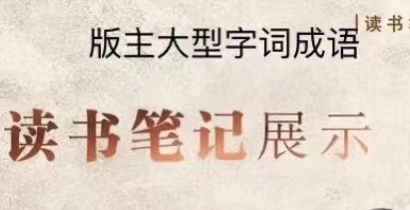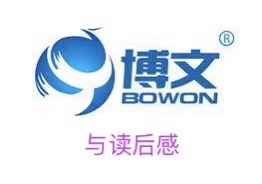Section 20 mentioned that I had finally captured the three authorized journals of English teaching for the middle school before July of 1986. Later so called authorized journals are called core journals. In this section I would introduce the three academic theses which I thought were of high quality and had a certain influence on my career.
“English Teaching & Research Notes (ETRN)” by Shanghai East China Normal University (ECNU) used one of my thesis, titled “different actual meanings of the pattern: adjective + to infinitive as subject compliment”, which came into being by my simplifying what was said in Section 38 of Chapter 12 of GCE and combining it with the sentences in the English lessons for middle school students. In addition, I had designed interrelated exercises for teachers to train their students. The following is the summary of what is said in GCE:
12.38 Adjectives with to-infinitive postmodification
This type contains several superficially similar but basically different constructions. We can distinguish at least the following four classes:
[Ⅰ] He is splendid to wait.
[Ⅱ] He is hard to convince.
[Ⅲ] He is slow to react.
[Ⅳ]He is furious to hear about it.
In construction of TypeⅠ, He is splendid to wait, the subject (he) of the finite copula (is) is also the subject of the non-finite complement clause(to wait). These constructions have analogues with anticipatory it.
It is splendid of him to wait.
He is splendid to wait.
In Type Ⅱ, He is hard to convince, the subject (he) of the finite copula (is) is the object of the infinitive (convince). There are analogues with the non-finite clause as subject with extraposition. The adjective is here primarily predicating the infinitive clause.
To convince him is hard.
It is hard to convince him.
Type Ⅲ consists of adjectives which have adverbial transforms. The subject of the copula is also the subject of the infinitive.
He reacted slowly.
Type Ⅳ consists of ‘attitudinal’ expressions where the complement head can be either an adjective (eg: angry) or an adjectival participle (eg: annoyed). In this construction the relation of the infinitive clause to the rest of the sentence is that of a quasi-agent expressing cause.
To hear about it infuriated me.
To hear about it made me furious.
It infuriated me to hear about it.
It made me furious to hear about it.
The journal “English Learning” by Beijing Institute of Foreign Language (in 1994 renamed as Beijing Foreign Studies University/BFSU) was read by almost all the English teachers I knew and becoming her writer was as difficult as climbing to the sky. I contributed up to more than ten articles one after another to her continuously and the good news came in the end. Her May issue of 1986 used one of my thesis, named “Possessive Pronoun or Definite Article used before Parts of the Body”. Parts of the body, such as hand, head, nose, eye etc. have a possessive pronoun and sometimes the definite article before them. In Chinese, there are no articles, so the beginners do have a lot of difficulties using them. By reading Section 116, Chapter 4 of GCE and Practical English Usage by Michael Swan, I summarized four points: 1) Generic reference to parts of the body requires the definite article. 2) Specific reference to parts of the body needs possessive pronouns. 3) The person referred to specifically already acts as an object, whose parts of his or her body have the definite article. 4) The parts of the body following prepositions may use the definite article before them. I quoted the sentences in the text books of the middle school students to illustrate them and furthermore designed some filling-in exercises for teachers to train their students.

The journal “English Learning” owned a lot of readers of English
The former section mentioned that Mr. Congyan Zhang from Yunhe Middle School of Pixian County (later renamed Pizhou City) became famous in the whole Xuzhou District because of issuing an academic thesis on the magazine “FLTS” published by BNU. I continued to adopt the method of contributing to the journal one article after another and took the fortress with great efforts. Two of my theses were released in her July issue of 1986 and Oct. issue of 1987 respectively: “How to Judge the Sentence Structure of S+Vt + Two Objects, Direct and Indirect?” and “Dimension and Choice of the Prepositions At, On and In”. Both of the two theses came from my reference to GCE. The following is the brief introduction to the second one.
In English the prepositions “at”, “on” and “in” are used to express a position and by translating them into Chinese you are not likely to grasp them completely. For example, “at” and “in” can both be followed by a city. Some authors said that before a big city, you should use “in” and a smaller one, use “at”. What is big and what is small? How to decide the city is big or small? The preposition “on” should be used before a surface, but we can also say “on a line”, puzzling all of us. In Section 11 of Chapter 6 of GCE Quirk holds the view that the choice of using “at”, “on” and “in” is decided by the dimension method of the speaker or the writer. There are three dimension methods, namely, dimension type 0 (point), dimension type 1/2 (line or surface) and dimension type 2/3 (area or volume). Point dimension, i.e. if you see a position as a point, like seeing a big city from above in the plane, you can use “at” before it. Line or surface dimension demands the preposition “on” and area or volume dimension “in”. The choice of using “at”, “on” or “in” depends on the types of dimension of the speaker or writer. Such a view point is highly generalized, therefore it is abstract, both fresh and profound. It was not strange that such an article had strong appeal to editors.
At that time the motive to write theses was to show the author’s academic level, without any pressure to be graded a degree or a professional title. It was January of 2010 that I was writing this section of my career, 24 years having passed. The management of journals and theses have changed a lot, as if black and white have been reversed. More and more people want to publish articles---graduates from all levels have to write graduation theses, and intellectuals of all industries need articles published in the official magazines to participate in grading technical personnel and try to gain appropriate titles. As a result, almost all levels of magazines have become the favorite of a lot of intellectuals. The authors cannot get any remuneration; on the contrary, they must pay a considerable fee for space of the pages his or her article will occupy. At the end of 1990’s it became a common phenomenon to plagiarize someone else’s articles. The more convenient way was to change the author’s name of a published article, duplicate it as one’s own and then report to the examination committee. Later the committee required that real articles instead of duplicates be sent to them. In addition, plagiarism may be judged by a program as if vice rises one foot, virtue rises ten. However, the temptation of degrees (bachelor, master, and doctor), fame and wealth of the academic and technical titles led a lot of lazybones who have the hardihood to search for new means, without considering shame and virtue. I searched on the web unintentionally, finding a website called “Professional Writing for You”. On its main page were written awesomely: such links as “Paying Criterion of Writing for You”, “Process of Writing for You”, “Contact me for Writing Theses” and etc. Among them writing theses for academic and technical titles cost most, namely 150-300 yuan per thousand characters. (my reward for articles began from 5 yuan per thousand and recently up to 50 yuan per thousand). The web makes some promises in order that the buyer can pay without any hesitation, just as the brothel ensures its prostitutes have no diseases and the whoremaster dare to visit it. CCTV once reported that writing thesis for you has become an industry, whose gross output value amounts to hundreds of millions of yuan a year. He or she, who has bought an article, has to find an editor of a magazine, stand in queue and pay the space fee of the article, whose price is different, depending on the level of the magazine. One of my colleagues told me that a thesis of 2000-3000 characters will cost you 5000-6000 yuan if you want to publish it on a key journal. Furthermore, you have to entrust somebody else to find a reliable editor. It isn’t distressing that academic corruption has gone so far, is it? It has completely violated the original intention of the system for the degree and academic or technical titles. The struggle between vice and virtue has no end and will continue forever. It’s unnecessary to be distressed very much. What could those get who gain fame and fortune depending on a pretence or trick. Can his or her conscience get peaceful? Doesn’t his or her spirit feel empty? Can his or her triumph last forever?
Jan 16. 2010 in Xuzhou
Proofreading on Feb. 15, 2012 in Chicago
Uploading on Aug. 5, 2023 in Xuzhou









